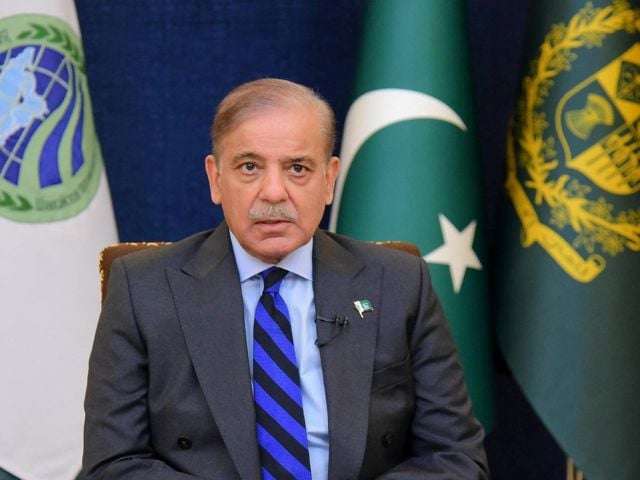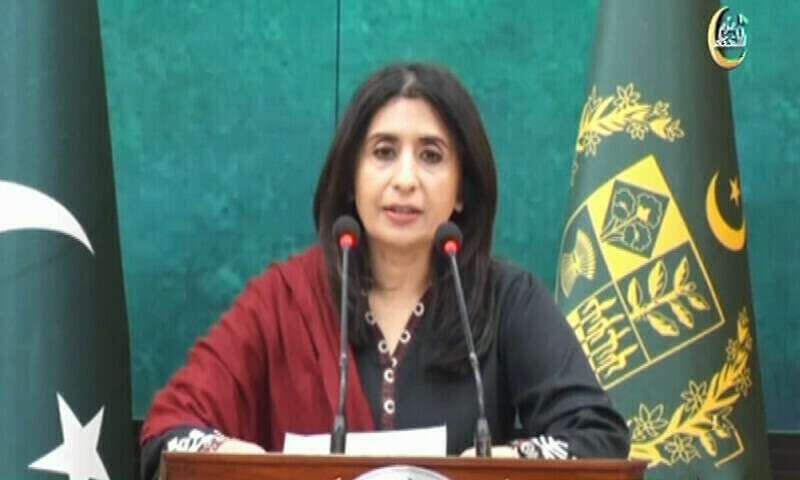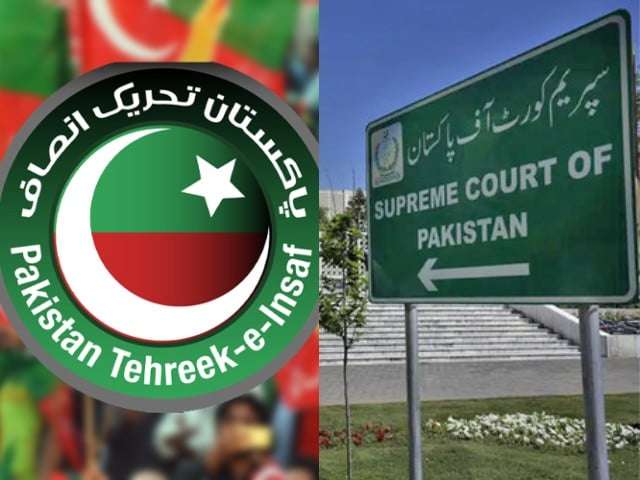Prime Minister Shehbaz Sharif has firmly rejected the recent sanctions imposed by the United States on Pakistan, calling them unjustified and without merit. He emphasized that Pakistan’s nuclear and missile programs are critical for the country’s security, and reiterated that there will be no compromise on these programs.
PM Shehbaz Sharif’s Response to US Sanctions
The United States imposed sanctions on several Pakistani entities, including the National Development Complex (NDC), due to Pakistan’s long-range missile and nuclear programs. In response, Prime Minister Shehbaz Sharif addressed the cabinet, expressing strong disapproval of these sanctions.
No Compromise on Pakistan’s Nuclear Program
In his address, the prime minister stated unequivocally that Pakistan’s nuclear program is strictly for defensive purposes. He added that the program is not aimed at aggression but is essential for maintaining the nation’s security. Sharif emphasized that this program does not belong to any political party or individual but to the entire nation of 240 million people, and therefore, it is “dear” to them. He also reaffirmed that Pakistan would not compromise on its missile program and would continue to make strong efforts to safeguard its sovereignty.
Rejection of US Sanctions
Shehbaz Sharif expressed his belief that the sanctions imposed by the US were without justification. He pointed out that the Pakistani nuclear program is solely for self-defense and poses no threat to any other country. Despite these sanctions, he made it clear that Pakistan will continue to pursue its defense initiatives, particularly the development of its missile capabilities.
“The sanctions imposed on us by Washington have no justification. Pakistan’s nuclear program is for defensive purposes and will not be used for aggression,” he stated during the cabinet meeting.
Pakistan’s Ministry of Foreign Affairs Responds
The Ministry of Foreign Affairs of Pakistan swiftly responded to the US sanctions, calling them “unfortunate” and “biased.” The government made it clear that Pakistan would not be deterred by external pressures in maintaining its defense programs. The country’s leadership assured the public that they would continue to work on strengthening the national defense, irrespective of the external challenges.
The prime minister also reiterated that the sanctions targeted entities like the NDC, which plays a crucial role in Pakistan’s ballistic missile and defense initiatives. He asserted that these sanctions were unfairly imposed, especially considering Pakistan’s longstanding role in promoting regional stability.
Pakistan’s Commitment to Eradicating Terrorism
In addition to addressing the issue of sanctions, Prime Minister Sharif also discussed the ongoing issue of terrorism in Pakistan, particularly the recent attacks that have claimed the lives of several security personnel.
Martyrdom of 17 Personnel in Terrorist Attack
The prime minister took a moment to express his condolences for the 17 Pakistani security personnel who were martyred in an attack by terrorist groups, which he referred to as “Khawarij.” He requested that all cabinet members and the nation pray for the martyrs’ souls.
Furthermore, he highlighted that Pakistan’s armed forces have taken decisive action against the attackers, with eight of the terrorists eliminated during the operation. The army chief personally visited Wana to encourage the forces engaged in the operation.
National Efforts to Combat Terrorism
Sharif emphasized the importance of eradicating terrorism in order to ensure that the benefits of Pakistan’s developmental efforts reach the people. He highlighted the country’s commitment to fighting terrorism by collaborating with provincial governments. The prime minister expressed confidence that Pakistan would succeed in eradicating terrorism through coordinated efforts across the nation.
“We will not rest until the terrorist threat is fully crushed,” he stated firmly.
Terrorism in Balochistan and Khyber Pakhtunkhwa
The prime minister also noted that the situation regarding terrorism in Balochistan and Khyber Pakhtunkhwa (KPK) differed slightly, but acknowledged the painful sectarian violence in the region. He stressed that both sides in Kurram were heavily armed, and that the security situation had worsened due to a lack of timely attention by the local government.
“The unfortunate part is that, at the time of this bloodshed, Islamabad was being attacked,” he added.
Political Developments and Dialogue with PTI
In a separate part of his speech, Prime Minister Sharif addressed the ongoing political developments, particularly the situation with the opposition party, Pakistan Tehreek-e-Insaf (PTI). He acknowledged that a recent meeting had been held with PTI representatives following actions taken by the Speaker of the National Assembly.
Negotiation Process with PTI
Sharif revealed that a negotiating committee had been formed to facilitate dialogue with PTI, and the next meeting of the committee was scheduled for January 2. He emphasized that personal and political interests must be subordinated to national interests, and that the political leadership must act with the welfare of the nation in mind.
“The national interest requires that personal interests be subordinated to national interests,” Sharif emphasized, expressing hope that PTI and the government could collaborate for the greater good of Pakistan.
The Importance of National Unity
The prime minister concluded his comments on the political situation by emphasizing the need for unity within the country. He expressed his hope that PTI, as well as the ruling government, would work together to resolve issues in the best interest of the nation. Sharif reiterated that the success of negotiations depended on the collective effort of all political stakeholders.
“I hope that PTI will also work in the national interest,” he said.
US Sanctions on Pakistan’s Missile Program
The sanctions imposed by the United States were officially announced last week and targeted four Pakistani entities allegedly involved in advancing Pakistan’s long-range missile program. The US State Department issued a statement detailing the rationale behind the sanctions, which were based on concerns over the potential proliferation threat posed by Pakistan’s missile development.
Entities Affected by US Sanctions
The sanctions were specifically aimed at entities such as Pakistan’s National Development Complex (NDC), which the US claims is responsible for advancing Pakistan’s ballistic missile program. The US also targeted other commercial entities in Pakistan that allegedly play a role in the development of long-range missile technologies.
Pakistan’s Strong Response to Sanctions
In response, Pakistan vehemently rejected the sanctions, calling them unfair and biased. The Pakistani government accused the US of double standards, noting that while Pakistan was facing sanctions, other countries, including China and Belarus, were not subjected to similar actions despite their involvement in supplying materials for Pakistan’s missile program.
“We question the double standards of the United States,” said a Pakistani government official.
Pakistan’s Rejection of US Allegations
Pakistan has consistently maintained that its missile program is for peaceful and defensive purposes only, aimed at ensuring the country’s security against external threats. The government and military officials have expressed confidence that the missile program is fully in line with international norms and regulations, emphasizing that it is not a threat to global peace.
Conclusion: Pakistan’s Sovereignty and Defense Programs
Prime Minister Shehbaz Sharif concluded his address by reiterating Pakistan’s unwavering stance on its nuclear and missile programs. He emphasized that the nation’s defense initiatives are a matter of national pride and security, and Pakistan will continue to pursue them regardless of external pressures or sanctions. Furthermore, Sharif made it clear that Pakistan would remain focused on achieving peace and stability in the region while safeguarding its sovereignty.
“We will not compromise on our defense capabilities. This is our right, and it is vital for our security,” he stated.
FAQs
1. What are the reasons behind the US sanctions on Pakistan? The US sanctions were imposed on Pakistan due to concerns over its long-range missile development program, which the US believes poses a proliferation threat.
2. How did Pakistan respond to the US sanctions? Pakistan rejected the sanctions, calling them unjustified and biased. The government emphasized that the missile program is for defensive purposes and in line with international norms.
3. What is Pakistan’s stance on its nuclear program? Pakistan’s nuclear program is strictly for self-defense and will not be used for aggression. The prime minister reaffirmed that there will be no compromise on the program.
4. What is Pakistan doing to combat terrorism? Pakistan is taking comprehensive steps to eliminate terrorism by working closely with provincial governments and utilizing all available resources. The country’s leadership has vowed to eradicate terrorism completely.
5. What is the political situation in Pakistan? The prime minister is hopeful that negotiations with PTI will proceed with a focus on national unity and the greater good of the country. A committee has been formed to facilitate these talks.



